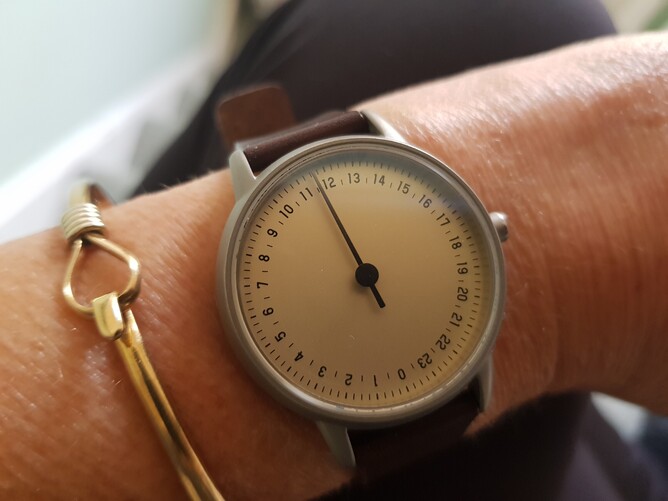Our sense of time can dominate our lives
If we want to know the time we can of course glance at a clock on the wall, or look at our phone or may be ask Alexa. I’m even old enough to remember the days before the internet, when if you wanted to know the accurate time you would phone the speaking clock!
So that’s clock time, but what about our own internal sense of time?
We all carry with us our own internal perception of time, and this perception can vary from person to person as well as according to what we’re currently doing.
For instance if we have a deadline looming we may feel panic rising and have trouble focusing on the task at hand. Time will be moving forward for us at a much greater rate than the minute hand ticks round the clock face on the wall.
In contrast when waiting impatiently for our bus to arrive we may experience the opposite effect. As we check and re-check the electronic bus stop sign displaying the countdown until the bus is due we may start to think the sign must be broken. “Surely it’s been at least 5 minutes since I last checked, yet the sign indicates its only been a minute”. Time seems to us to be standing still. Mind you if we glance up at that moment and notice someone running for the bus, we can be pretty sure it’s doing the opposite for them!
How might altering our perception of time be useful?
There’s been lots of research into how changing our perception of time can be helpful.
For instance if we tend to be impulsive then it can be useful to do some work to be a little more future orientated, so we can start to gain some foresight into any unwanted consequences of our impulsivity.
On the other hand if we’d like we’d like to take the plunge more in life and get stuck in without worrying thinking about how it might turn out, then we might benefit from learning to be a little less future focused.
Anxiety can affect how we feel time
Emotions like anxiety can alter our perception of time and can make us feel like we’re constantly running out of time.
In contrast being calm and relaxed and absorbed in something can slow down our perception of time, so much so that we can be taken by surprise when we look at our watch and ask ourselves “Wow is that the time, where did the time go?”
So, as we address our sources of anxiety and can feel ourselves relax more, we might well find that those feelings of constantly running out of time fade, as our internal perception of time adjusts itself.
For some people a growing realisation that the past is separate from the future and both the past and the future are both separate from the now, can be beneficial. Beneficial because it allows us to make decisions in the here and now without being unduly influenced by our past or what the future may or may not hold.
Hypnosis and the Fluidity of Time
Hypnosis seems to enhance the ability of clients to experience alterations in time perception, a phenomenon often called “time distortion” by hypnotherapists.
Time distortion is a subject that has fascinated scientists for decades and has led to a body of research which has informed many of the hypnotherapeutic tools myself and other hypnotherapists use today to help our clients to reduce their anxiety and have better control over their sense of time.

